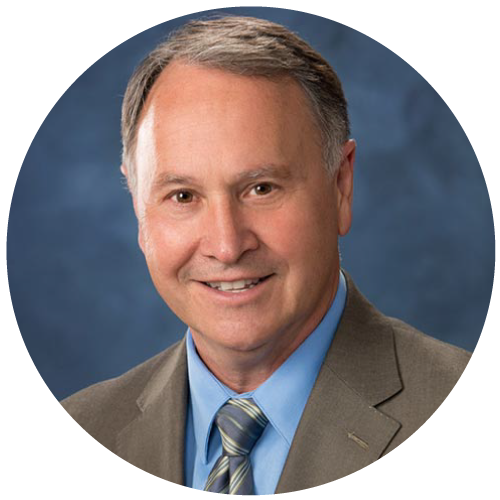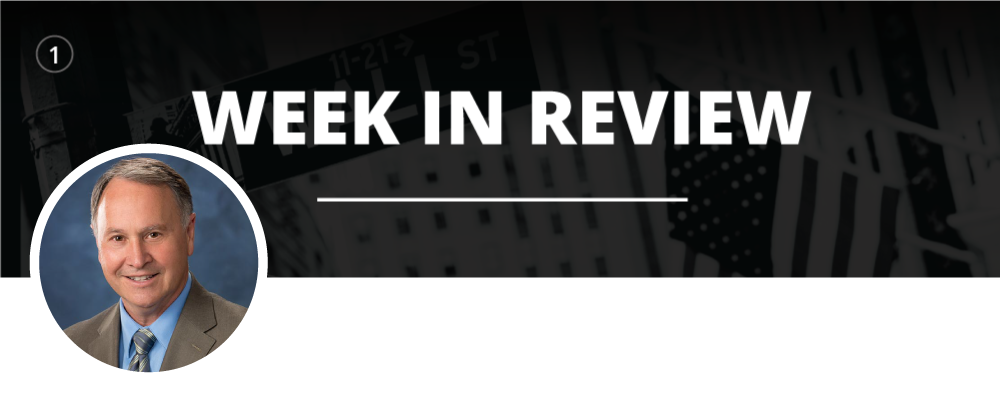
Axiom | Vol 267
Stellar Financial Climate Causes Some To Increase Year-End Targets

Meet The Axiom®’s Guest Editor: Mike Venturini
Hi! My name is Mike Venturini. I’m part of the team here at Annex.
My role as Wealth Manager is to help guide clients to meet their unique family’s investment and retirement goals.
I love it when we can bring the strength of the Annex team together to help clients with financial planning, tax, and estate planning, while always working in their best interest as a fiduciary.
My wife and I moved up to Elm Grove 5 years ago from Racine. We love it here! I like to play golf and I’m a big Wisconsin sports fan. Go World Champion Milwaukee Bucks!
BACK TO TOP ↑

“My favorite the Axiom is all current events that we talk about and how that can relate to your portfolio and your financial plan.”
– Guest Editor: Mike Venturini | Wealth Manager
________________________________________
Stellar Financial Climate Causes Some To Increase Year-End Targets
Fantastic earnings, low interest rates, and great employment news have some analysts changing how they see 2021 closing out. Will the specter of inflation change the rosy present? Annex Wealth Management’s Dave Spano and Derek Felske discuss.
BACK TO TOP ↑

Poll Recap: Do You Have A Will?
According to a 2021 poll by caring.com, 18-34 year olds are now more likely to have a will than 35-54 year olds. And only 21% of people over 55 have a will. (1)
In our latest poll, we asked readers if they had a will – and 83% of respondents said they do. The majority of those who said yes were 60 or older. Only 1 respondent fell into the 18-34 year old age bracket, and said they did not currently have a will set up.
Out of those who currently have a will, the majority said it was prepared by an attorney rather than going the internet route. When asked if they also have an estate plan, the number dropped to 67%.
Our Axiom poll results may not have reflected caring.com’s, however Americans as a whole are beginning to understand the need for a will, earlier – and COVID may have played a role. Many younger Americans had delayed creating an estate plan by assuming (incorrectly) that estate planning is only for older people and not relevant for young, healthy people. The unknowns that came along with the Covid pandemic caused many younger Americans to see the importance of having a plan in place.
1.https://www.caring.com/caregivers/estate-planning/wills-survey/
BACK TO TOP ↑

Protect Yourself From Financial Elder Fraud
Many of us have taken steps to protect ourselves from the menace of identity theft, whether its freezing our credit to adding protections to our computers and email. While identity theft is a serious and growing issue for Americans, financial elder abuse is an even more significant danger.
Over 200,000 cases of financial elder abuse are reported each year in the US. However, that number may be low – experts agree that most financial elder abuse cases are not reported.
Financial elder abuse generally involves an abuse of financial control in a relationship where there is an expectation of trust. While we’d like to imagine a slimy con man entering your loved one’s life, sadly, this type of fraud is usually perpetrated by someone who the victim knows.
This week, your MoneyDo is to be proactive and take steps now to protect your finances as you age. The best line of defense against financial elder abuse is surrounding yourself with a strong and trustworthy social support network.
Start by putting a Durable (Financial) Power of Attorney in place. The person you nominate should be someone you trust. Just as importantly, this individual should be someone is who is both financially savvy and has a strong financial foundation themselves. Without that foundation, personal financial issues may drive an otherwise trustworthy person to take unexpected action.
When selecting a Power of Attorney, those who are married may find their spouse to be the natural choice. However, if you are in a second marriage, children from a prior relationship may be a better choice. Selecting the alternate or backup is another important decision. Remember, the person you name will ultimately have control over your finances, so the decision should not be taken lightly. You could also name multiple individuals as your POA so that they can monitor each other’s actions.
Secondly, surround yourself with trustworthy individuals. Oftentimes, that’s family. Elderly individuals who have many people involved in their lives are much harder targets for fraud predators. Have conversations with trusted family and friends on a regular basis. An open line of communication will give your loved one’s comfort to talk to you if they have concerns.
Consider a system of checks and balances. As you age, learn to trust your network. Allow your family to monitor your bank accounts. Look for unusual activity. Fraudsters tend to start small to see if they are successful. The more eyes looking out for you and your family, the better.
Lastly, we suggest having a family meeting. The key here is to establish expectations, ground rules, and appropriate checks and balances to ensure that everyone follows your plan. A family meeting will also help foster those important family connections.
The steps outlined in today’s MoneyDo may not only improve your defense against financial elder abuse. This is your chance to strengthen ties and lines of communications between you and your loved ones. You will soon discover that you’re doing more than just enhancing your financial stability. You’re building a strong family and social network at a time when you’ll need it most.
BACK TO TOP ↑

This week’s Ask Annex comes from Randy, who asks:
“Solve a friendly debate with my wife: A Will avoids probate, right?”
___________________________
We asked Annex Wealth Management’s Jill Martin, JD:
Dear Randy,
I’m always ready to resolve marital strife. Short answer: Wrong! The question you have regarding avoiding probate is likely the number one misconception about estate planning. A Last Will & Testament is designed to provide instructions about what happens to assets and accounts in your name when you die. Before those assets can be distributed, your Last Will has to be “proven” as the final version through the court of law, i.e. probate.
By having the Will proven in court, it provides beneficiaries, creditors and financial institutions assurances that the document is legally valid and should be followed. A Last Will is intended to be the ultimate instruction about how to distribute ALL assets upon your death. The rules and process for probate depends on the state where the probate proceeding occurs.
Often probate is initiated in the county of residence for the person who died, but there can also be secondary (or ancillary) probate proceedings if the individual owned real estate in multiple states.
Remember, probate only applies to assets that are solely titled in your name when you die that do NOT have beneficiary designations. There are other ways to avoid probate. For example, if your IRA has a beneficiary designation that says it is payable to your 3 children after your death, the IRA custodian only requires a death certificate, and then will pay the account out to your 3 children.
As such, the IRA is not subject to the court-supervised, probate process. The main reason for this is that beneficiary designations are a legally binding element of the account agreement so financial institutions do not need to rely on the Last Will for the instruction about who to pay the account to after your death.
It’s important to note, that unlike a Last Will, a beneficiary designation only applies to the specific account it is attached to, so you would need to make sure you have them on ALL your accounts to try and avoid probate.
Another option to avoid probate is to use a Revocable Trust as part of your estate plan. A Revocable Trust operates very much like a Last Will, in that it is intended to apply to ALL your assets, but the benefit is that Revocable Trusts are not subject to the probate court’s jurisdiction. As such, people often utilize a revocable trust and beneficiary designations together to help avoid the probate process when developing their estate plan.
Hope this resolves the debate. I’m ready to help with any more questions you may have.
-Jill Martin, JD | Estate Planning Attorney
BACK TO TOP ↑

Does Your Advisor Help You Ask The Right Questions About Retirement?
Brandon Lehman, CFP®, Wealth Manager at Annex Wealth Management, demonstrates the value of having a fee-only fiduciary advisor with these real-life client stories.
BACK TO TOP ↑


KNOW THE DIFFERENCE MINUTE:
Back To School Shopping Will Be More Expensive This Year
KNOW THE DIFFERENCE MINUTE:
US Capital Goods Orders Increase
ASK ANNEX
What do you know about the new tax cut and how will it affect me?
BACK TO TOP ↑

Annex Wealth Management provides free workshops, open to the public, on key wealth management topics.
Each week, we provide links to register for upcoming events.
BACK TO TOP ↑